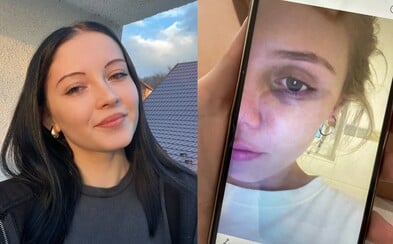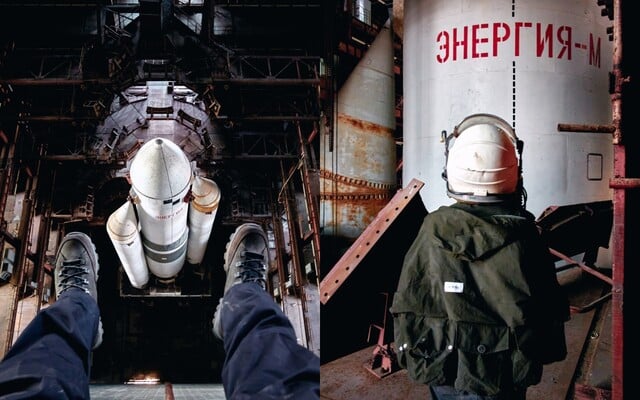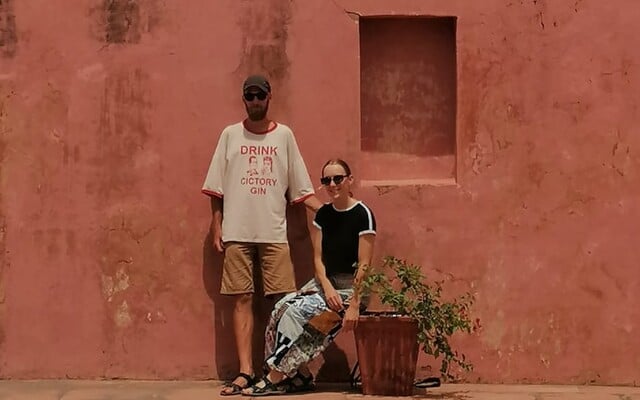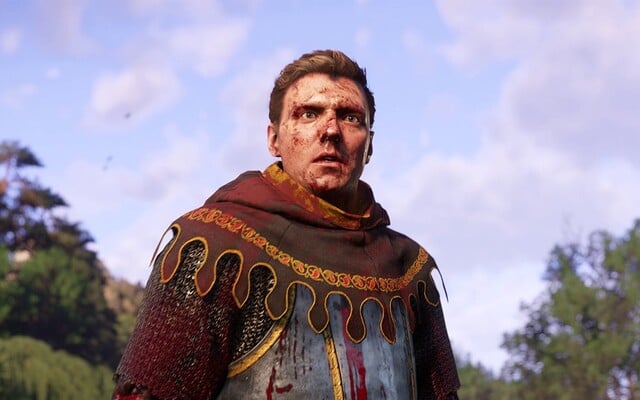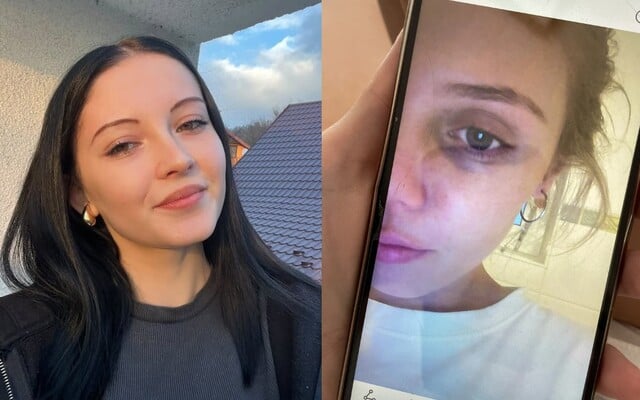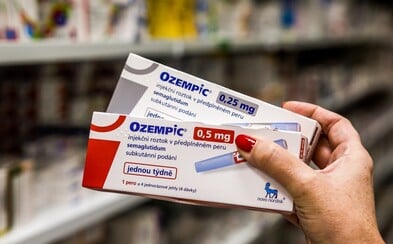 Ozempic can cause vision loss. A new study has shown a link between the drug and eye problems
Ozempic can cause vision loss. A new study has shown a link between the drug and eye problems
Ozempic can cause vision loss. A new study has shown a link between the drug and eye problems
Ozempic can cause vision loss. A new study has shown a link between the drug and eye problems
Patients Can Wait Weeks To See A Doctor For An Assessment. With Us, They Get It Within Five Days, Says Diagnose.me CEO Lukáš Alner
The company Diagnose.me has brought to market a service that allows us to consult health problems online with world-renowned specialists.
If problems persis, please contact administrator.
Diagnose.me has a portfolio of around 150 medical specialists from 35 countries around the world, covering almost all major medical disciplines. Thanks to their service, clients can have a medical assessment performed by world-class specialists and thus receive an additional valuable opinion from a recognised expert in their treatment.
However, in the words of Diagnose.me co-founder and CEO Lukáš Alner, the company's ambition is definitely not to compete with local doctors, but to bring a superior service to the healthcare system.
"Our goal is to bring world-class expertise in diagnostics. We would like to create something like a virtual hospital where we can bring world-class expertise in every medical field," he tells Refresher in an interview.

How did the impulse to found Diagnose.me come about?
Coincidentally, we are sitting near a photo of Ivan Štefunko, who was one of the co-authors of the idea and a co-founder of the company. The idea was born more than ten years ago, when Ivan was dealing with a rather serious health problem and needed to consult someone from abroad.
One of his options was a difficult brain surgery, which was recommended by Slovak doctors. At that time there was no online consultation option, so he flew to the USA with a CT scan. After his surgery, we decided that we wanted to bring the service to the market, because he certainly wasn't the only one who wanted to hear the opinion of multiple specialists when dealing with health issues.
Mr. Štefunko has supported many startups in their early stages with investments. Was it easier to start a company with someone who already has years of experience in the startup environment?
Both Ivan and I have had experience investing in startups and structuring companies, having founded and successfully sold a few. Therefore, we complemented each other and did not experience serious funding crises. In addition to the founders, investment funds and several international investors have invested in Diagnose.me.
If there is one thing that doctors are explicitly allergic to, it is when people google diagnoses and argue with them based on what they find on the internet.
Diagnose.me has been financially self-sustaining for several years, but we plan to open another investment round due to our planned expansion onto Asian markets as well as product development, which we take very seriously.
How would you briefly describe the service Diagnose.me?We have two models how a person can reach our specialists if he wants to consult a problem. The first one is that he comes to the site and chooses a specialist by himself or after consulting with our colleagues. The second option is that he accesses the service through one of our partners, which are mostly life insurance companies or, for example, banks that give the service to their clients as a benefit.

How does it work further after the assessment? Can I go back to my local doctor with a report from a doctor in America, for example, who has suggested a different treatment?
It is a very common question. Our clients are not only from Slovakia and we have to have this problem solved everywhere. Since we have managed to put together a database of specialist doctors who may not even be available in some countries or are very difficult for patients to reach, the opinion of another expert is usually taken into account by the local doctor.
Doctors are not bothered by the opinions of other doctors and treat them with respect. Our clients are even doctors who have become accustomed to consulting experts from another country for more serious cases using our service. If there is something that doctors are explicitly allergic to, it is when people google diagnoses and argue with them based on what they have found on the internet. It should be added, however, that it is always up to the local doctor to decide whether to change the diagnosis or the treatment.
For some types of life insurance, our service is free. The translation of the medical documentation as well as the doctor's report into the client's language is also part of the whole package and all included in the price. We already have 3.5 million such clients in Europe.
Does it happen that a foreign specialist suggests a treatment that cannot be performed in Slovakia, for example due to weaker technical equipment?
The Slovak health sector does not have this type of problem. I do not think that we are short of equipment or medicines. It may happen that we are short of some very specific medicines, for example, in targeted cancer treatment. However, most of the therapeutic and diagnostic tools we have here are of a high standard.
We don't want our assessments to be abbreviations or Latin names that the patient doesn't understand, so they have to ask the doctor afterwards what they actually have and what their diagnosis is.
What we are dealing with is diagnosis. In Slovakia, for example, we can take very high-quality MRI scans. However, the weight of deciding what the diagnosis is and what treatment is recommended rests with the person looking at the image. That is why it is important to choose the right and experienced specialist. In Slovakia we have a lot of experienced specialists, but few of them have the opportunity to sub-specialise (for example, within radiology, to specialise only in an organ).
Diagnose.me is therefore a service that allows people to hear an additional opinion from a specialist that they might not have had access to because of the long waiting times for specialists.
That too, but it's not just about the waiting time. As I mentioned, it is mainly about the opportunity to consult a highly specialised expert. In Western countries, there are centres of excellence, hospitals focused on one type of disease. For example, an entire hospital is dedicated to the treatment of prostate cancer or specialises only in the treatment of bone tumours. Such narrow specialisation, by contrast, is not possible in many countries, so it makes sense to link people with specialists across national borders.
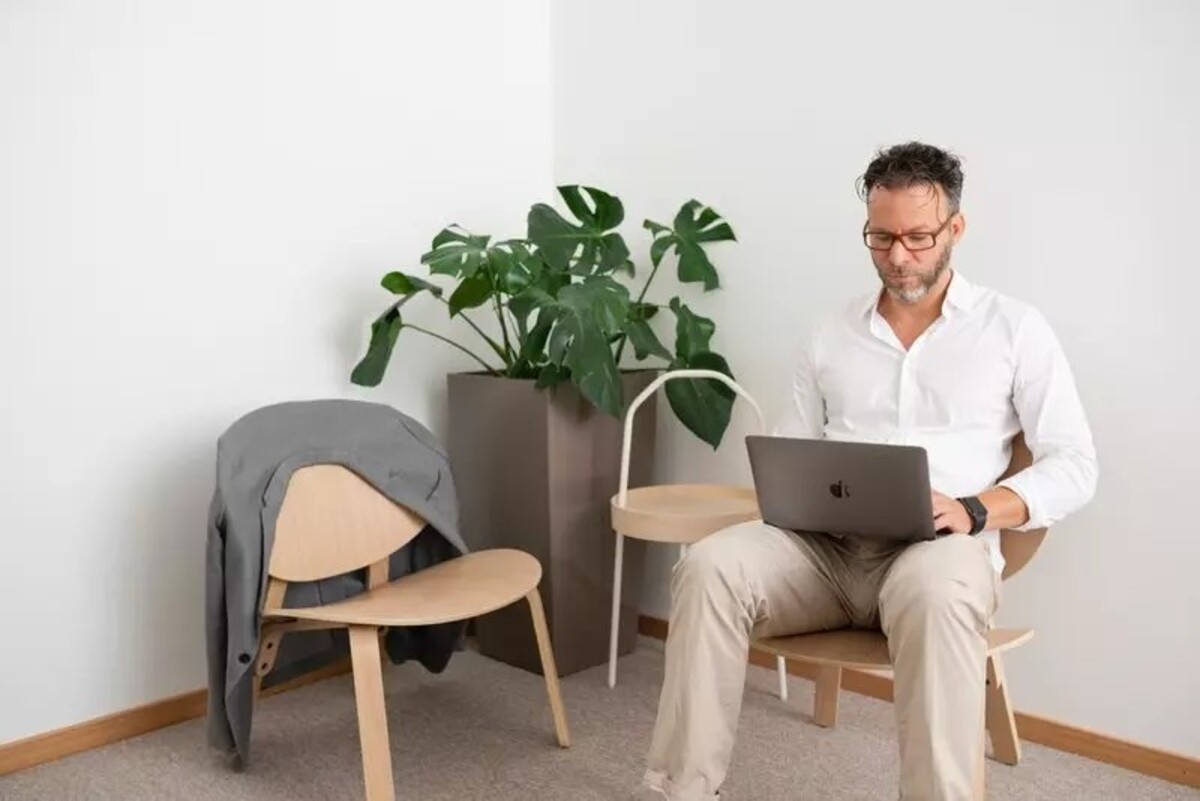
One of the serious problems of the Slovak health care system is the fact that patients wait for weeks or even months to see a specialist. Do you think that services like yours could partly solve the problem?
The shortage of specialists is not only a problem in Slovakia, but all over the world. Especially in America and Western Europe. In our country, however, it is quite extreme. A great many medical talents have left us for abroad as a result of the working conditions, and in my opinion, this is a reprehensible neglect of the health sector and a huge problem.
Our aim, however, is not to replace specialists, we want to create a kind of superstructure for clients and we certainly do not want to compete with Slovak doctors. That is also why our partners are life insurance companies, which are also a kind of superstructure to the basic health insurance.
How long does it take for a client to get an opinion from a specialist through your service?
Our specialists set their own terms and conditions for how long it takes them to prepare the report, but it typically takes three to five days, including all necessary translations.
How do you vet the specialists you work with? After all, if I'm going to consult my medical condition with someone from the other side of the world who I've never physically met, I need to have some assurances.
When we set up the service, we were much more focused on specialties such as radiology. Since then, the database has expanded to other specialties within medicine. At the beginning, we set up a medical specialty committee, which includes the guarantors of our service. It is headed by the chief professional guarantor, Erik Ranschaert, MD, PhD. The members of the commission are medical experts internationally, as well as heads of medical professional organizations in the country, namely from the USA, Europe, India and other countries.
It was through these professional organizations that we sought out experts in the region. We wanted to create a database of doctors who are the top in their country. However, we scrutinise each and every specialist we engage with. They send us a set of documents, a license and we sign a contract with them.
Each specialist also receives training on how to write reports so that they are readable not only for the local doctor, but also for the patient. We do not want our reports to be abbreviations or Latin names that the patient does not understand, so he has to ask the doctor afterwards what he actually has and what his diagnosis is.
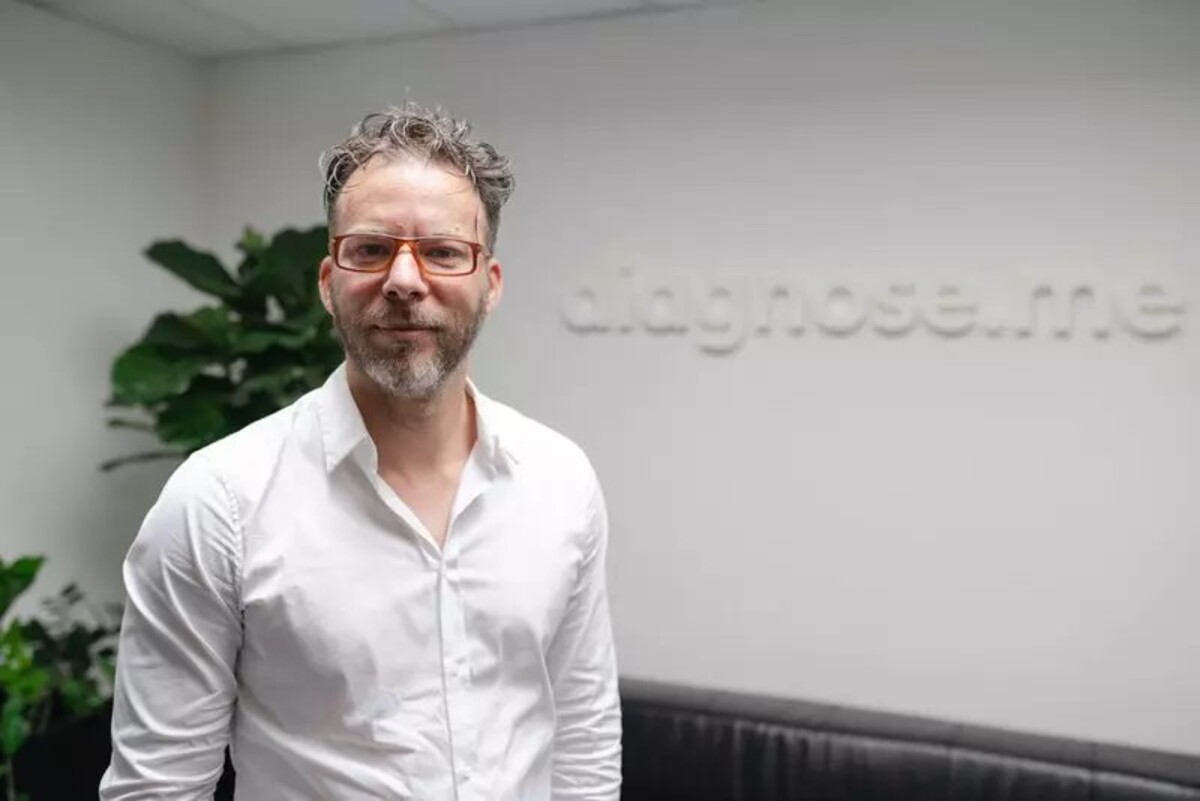
Which professionals are most sought after through your network?
These are the three most common categories. The first one is oncology. Within this category, we are sought out by patients who want a consultation basically for certain confirmation of their diagnosis, or who already have a confirmed diagnosis but want to be sure of the correctness of their treatment.
Another distinct category is joint and spine surgery. In these cases, patients want to know whether their disease can be cured conservatively or whether invasive surgery is really necessary. The advantage is that our specialist has no conflict of interest. He knows that he will not perform the surgery in question and is therefore completely objective.
Sometimes we are surprised by the stories of our clients who tell us how difficult it is to reach a specialist in the US or Western Europe.
A separate category is diagnoses in children. We care even more about their health and we want to be 100% sure of their treatment. That is why our clients want to consult as many experts as possible every step of the way.
Will this way of digitally connecting specialists become more common in the future, and will it also be a way to make diagnoses more quickly and accurately?
So far, I'm pretty skeptical. After ten years of Diagnose.me, I can define many barriers and I think you have named many of them in your questions. The problem is not only the technology, but especially the legislative issues, from licensing to legal liability, which are very strict and conservative, which is also justified, as these are very sensitive issues.
Our added value is basically the blurring of boundaries. As a commercial company, we can afford to do that. But to do it in a systemic way, to link the health systems of, for example, Austria and Slovakia at the level of public health, is absolutely unrealistic.
You communicate with experts from all over the world. How is Slovakia doing in the global scale of digitalization of medicine?
I think that even if the digitalisation in Slovak healthcare is not very flattering, it is still not the main problem of our healthcare system. However, we are lagging behind on things which, in my opinion, can be solved relatively easily, the so-called low-hanging fruit.
One of these is patient management, which involves, for example, information or communication. I am also referring to the flow of information between specialists, but also to the communication between the doctor or nurse and the patient himself. We have huge reserves here, and we do not need billions of euros to improve it.
Is the health segment better rated in most of the world than it is here?
Unfortunately, in many parameters we are really on the tail of the developed world. One of the indirect parameters is, for example, the average life expectancy, which is one of the lowest in Europe. On the other hand, even abroad, patients do not get to see a specialist or have a specialist examination overnight. We are sometimes surprised by the stories of our clients who tell us how difficult it is to get to a specialist in the United States or in Western Europe.
This is because their system is set up to make it complicated to get in and to get as many patients as possible treated by a highly qualified nurse or general practitioner. Incidentally, a number of these general practitioners are employed from abroad. From Eastern Europe, India, Pakistan and other countries. This is just to say how important migration is, without which our Western world can no longer function.
With such a setup, as few people as possible should be able to get to specialists. The problem arises when we really need a specialist and, because of the system, it can take up to several months to get one. This is bad enough in Slovakia too, but in many countries it is even worse. That's why we have many clients from Western Europe. They have had an MRI scan, for example, and they wait for weeks for an interpretation and a description. Here, they get it in a few days.
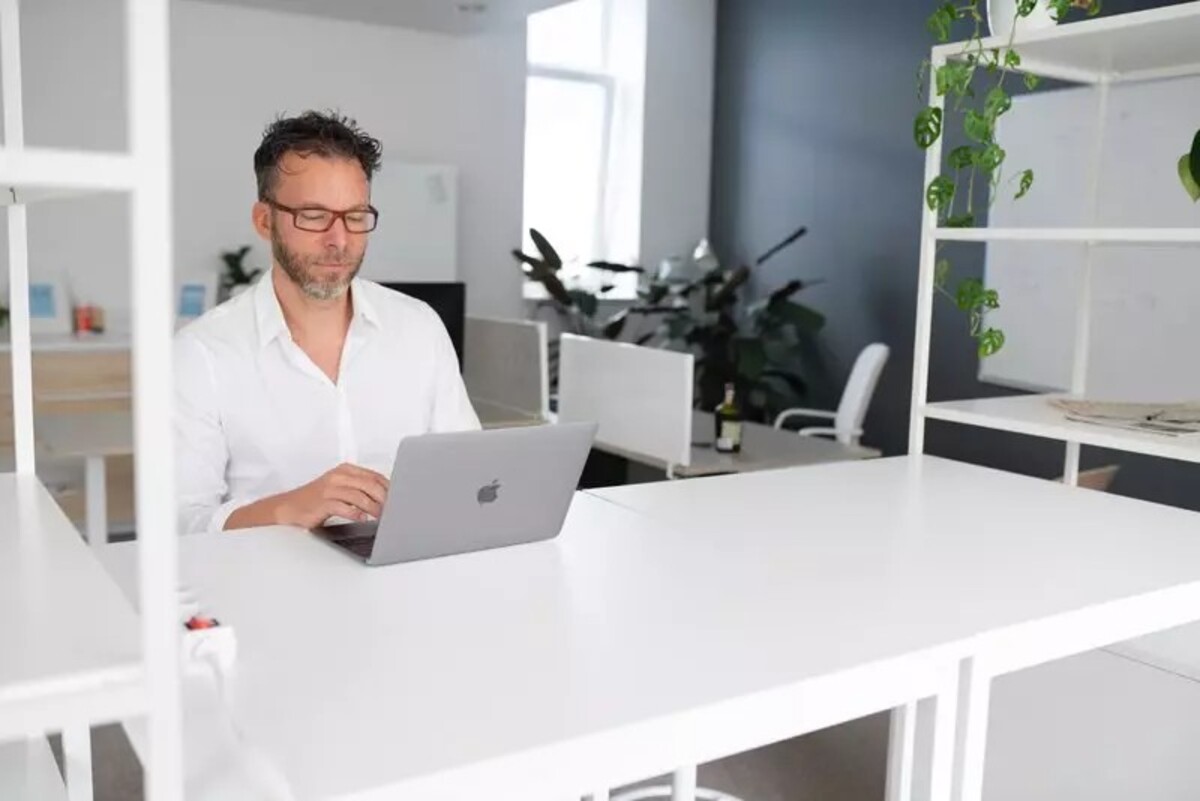
Do you also encounter scenarios where the client, after consulting a specialist through your service, decides, for example, to undergo surgery with that foreign specialist and travel to see him?
It happens relatively often, but it's not part of our business model. There are companies that provide treatment abroad and then take a commission on the cost of the procedures. That is exactly what we do not want to do. The reason is that we want the client to be sure that there is no conflict of interest.
A new area we would also like to focus on is preventive medicine and longevity. In other words, to be able to offer added value also to clients who do not have a health problem but are interested in their health.
We want to avoid a scenario where the same doctor recommends an operation in an opinion, while at the same time performing it and being paid for it. It is much more objective to have an opinion from a doctor who subsequently will not perform the operation. Surgeries cost many times more than opinions. I do not want our clients to get the impression that experts will recommend a procedure that they will make money from.
At the beginning of the interview you mentioned that you are thinking about bringing a strategic investor into the company. Where would you like to go with the capital?
Our goal is to bring cutting-edge international expertise in diagnostics. We would like to create something like an "international virtual hospital", where we would be able to bring top expertise and the latest innovations in every single medical field.
A new area we would also like to focus on is preventive medicine and longevity. In other words, to be able to offer added value also to clients who do not have a health problem but are interested in their health. We want to bring specialized blood tests with interpretation from international specialists in the field. We want to bring something that is not offered in the public health market, but already exists somewhere in the developed world. We want to pilot the new products this year already, in cooperation with our partners on the Slovak market.
If problems persis, please contact administrator.

